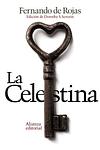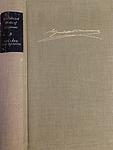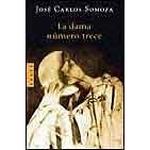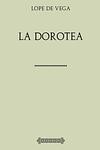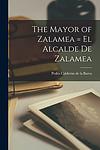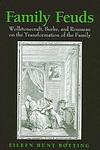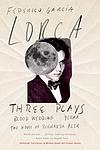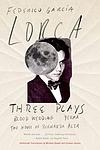The Greatest Spanish "Drama" Books of All Time
Click to learn how this list is calculated.
This list represents a comprehensive and trusted collection of the greatest books. Developed through a specialized algorithm, it brings together 300 'best of' book lists to form a definitive guide to the world's most acclaimed books. For those interested in how these books are chosen, additional details can be found on the rankings page.
Genres
Drama is a genre of literature that typically deals with serious and emotional themes, often exploring the complexities of human relationships and the struggles individuals face in their lives. These books often feature intense character development and intricate plotlines, delving into the depths of human experience and the challenges of navigating the world around us. From family dramas to political intrigue, the drama genre encompasses a wide range of stories that aim to captivate readers with their raw and powerful storytelling.
Countries
Date Range
Reading Statistics
Click the button below to see how many of these books you've read!
Download
If you're interested in downloading this list as a CSV file for use in a spreadsheet application, you can easily do so by clicking the button below. Please note that to ensure a manageable file size and faster download, the CSV will include details for only the first 500 books.
Download-
1. La Celestina by Fernando de Rojas
The book is a tragic comedy set in 15th-century Spain, revolving around the passionate and ill-fated love affair between Calisto and Melibea. After Calisto falls for Melibea but is rejected, he enlists the help of Celestina, an old and cunning procuress, to win Melibea's heart. Celestina's manipulations initially seem successful, but her greed and the involvement of various other servants and hangers-on lead to a series of dramatic and violent events. The story ultimately unfolds into a cautionary tale of lust, deception, and the destructive consequences of obsessive love, ending in tragedy for most of the main characters.
-
2. Fortunata and Jacinta by Benito Pérez Galdós
"Fortunata and Jacinta" is a novel set in 19th century Spain, that explores the lives of two women - Fortunata, a poor but beautiful woman, and Jacinta, a wealthy and well-bred lady. Both women are in love with the same man, a wealthy and idle individual who leads a life of debauchery. The novel offers a rich and detailed portrayal of Madrid society during the period, and the stark contrast between the lives of the rich and the poor. It raises questions about marriage, social status, and the role of women in society.
-
3. Life Is a Dream by Pedro Calderón de la Barca
"Life is a Dream" is a philosophical allegory regarding the human situation and the mystery of life. The play follows the story of Segismundo, Prince of Poland, who has been imprisoned in a tower by his father, King Basilio, following a dire prophecy that the prince would bring disaster to the country and death to the King. Basilio briefly frees Segismundo but returns him to the tower when the prince proves violent and unruly. The story explores themes of free will, fate, power and the thin line that separates reality from dreams.
-
4. The Hive by Camilo José Cela
"The Hive" is a novel set in post-Civil War Spain, during the harsh years of Madrid's postwar recovery. It provides a gritty and realistic portrayal of the struggles faced by ordinary citizens in a society marked by deprivation and repression. The narrative is non-linear and fragmented, featuring a vast array of characters from various social classes, whose lives intertwine in a depiction of the bleakness and despair of the time. The book was initially banned in Spain due to its critical view of Franco's regime.
-
5. Solitude by Caterina Albert
"Solitude" is a novel that explores the life and struggles of a young woman living in a rural Catalan village. The protagonist is a strong-willed, independent woman who defies societal norms and expectations, leading to friction with her conservative community. The narrative examines themes of gender, societal pressures, and the struggle for personal freedom, providing a powerful critique of rural life and patriarchal society.
-
6. Time of Silence by Luis Martín-Santos
"Time of Silence" is a complex narrative that follows the life of a young doctor living in Madrid during the Franco regime. Throughout the novel, he becomes embroiled in a series of unfortunate events, including an affair with a married woman, which leads to tragic consequences. The novel is known for its innovative narrative techniques and its critical depiction of the moral and political climate of Spain under Franco's rule.
-
7. Nada by Carmen Laforet
"Nada" is a novel that follows the life of a young woman who moves to Barcelona to attend university after the Spanish Civil War. She stays with her eccentric relatives who live in a grand, but decaying mansion. The protagonist struggles to find her identity and independence while dealing with poverty, repression, and the emotional instability of her relatives. The story is a powerful exploration of despair, alienation, and the loss of innocence.
-
8. Bohemian Lights by Ramón del Valle-Inclán
"Bohemian Lights" is a novel set in early 20th century Madrid, Spain, featuring a group of bohemian artists and intellectuals as they navigate poverty, passion, and the pursuit of their crafts. The narrative captures their struggles and triumphs, the vibrant and decadent world they inhabit, and their unyielding commitment to their artistic ideals. The novel offers a vivid portrayal of bohemian life, with its blend of joy, despair, and relentless creative energy.
-
9. Our Lord Don Quixote by Miguel de Unamuno
The book presents a philosophical and introspective analysis of the classic literary character Don Quixote, delving into the existential and moral dimensions of his adventures. The author reflects on the nature of reality, the importance of ideals, and the interplay between sanity and madness, arguing that Quixote's chivalric quests and his refusal to concede to the limitations of his mundane world embody a profound and heroic affirmation of human imagination and spirit. Through this exploration, the work becomes a meditation on the human condition and the enduring power of fiction to inspire and give life meaning.
-
10. The Trickster of Seville and His Guest of Stone by Tirso de Molina
"The Trickster of Seville and His Guest of Stone" is a classic Spanish play that tells the story of a libertine nobleman who seduces women and leaves them, refusing to marry. His actions lead to severe consequences when he invites a statue of a man he has wronged to dinner. The statue, representing divine justice, accepts the invitation and later reciprocates, leading to the protagonist's downfall. The play is widely recognized for introducing the legendary character of the seductive rogue to the world of literature.
-
11. All Souls by Javier Marías
"All Souls" is a novel that follows the experiences of a Spanish professor teaching at Oxford University. His life is filled with eccentric colleagues, a puzzling love affair, and a mysterious sense of intrigue. As the protagonist navigates through the academic world, he becomes entangled in a web of personal relationships and bureaucratic intricacies. The book is a blend of romance, suspense, and satire, with a poignant exploration of memory, longing, and the ephemeral nature of human relationships.
-
12. The Heretic by Miguel Delibes
"The Heretic" is a historical novel set during the Spanish Inquisition. It follows the life of a man born in 16th century Spain, who, despite being raised in a strictly Catholic environment, begins to question the teachings and practices of the Church. As he grows older, he becomes involved in the Protestant Reformation, risking his life in a society where heresy is punishable by death. This book explores themes of faith, religious persecution, and the struggle for freedom of thought.
-
13. La Dama Número Trece by José Carlos Somoza
This novel is a thrilling blend of mystery, horror, and fantasy, revolving around a struggling writer who becomes the target of a secret society known as "The Thirteen Ladies". These shadowy figures have the ability to manipulate reality through the power of words and storytelling. As he is drawn deeper into their world, he must uncover their secrets and find a way to survive their deadly games. The narrative is a rich exploration of the power of language and mythology, with a suspenseful plot that keeps readers on the edge of their seats.
-
14. Fuente Ovejuna by Lope de Vega
"Fuente Ovejuna" is a Spanish Golden Age play that centers around the collective uprising of the inhabitants of a small village against their oppressive overlord. After enduring countless abuses, the villagers, led by a young woman named Laurencia, band together to revolt and ultimately murder the tyrannical commander. When royal authorities arrive to investigate, the villagers respond with a united front, famously declaring "Fuente Ovejuna did it," showcasing the power of communal solidarity against injustice. The play explores themes of rebellion, honor, and the strength of the collective will, and is celebrated for its portrayal of the human spirit's resistance to tyranny.
-
15. La Dorotea by Lope de Vega
"La Dorotea" is a prose work that combines elements of a novel and a play, offering a vivid portrayal of love and honor in 16th-century Spain. The story unfolds through a series of dialogues and letters, centering on the passionate and tumultuous relationship between Dorotea and Fernando. Their love affair, marked by societal constraints and personal betrayals, reflects the complexities of human emotions and social expectations. The narrative is rich with poetic language and explores themes of love, jealousy, and the consequences of unbridled desire, providing a critical commentary on the romantic ideals and gender dynamics of the time.
-
16. The Knight Of Olmedo by Lope de Vega
"The Knight of Olmedo" is a tragic Spanish Golden Age play that tells the story of Don Alonso, a noble and chivalrous knight who falls in love with Doña Ines, a woman promised to another man, Don Rodrigo. Set against the backdrop of the town of Olmedo, the play weaves themes of love, honor, and destiny as Don Alonso's courtship is met with rivalry and treachery. Despite the warnings of his friend Tello and the omens foretelling his doom, Don Alonso's pursuit of love leads to a dramatic and fateful conclusion, showcasing the playwright's mastery of combining lyrical poetry with the stark realities of romantic tragedy.
-
17. The Mayor Of Zalamea by Pedro Calderón de la Barca
The play is a Golden Age Spanish drama that explores themes of honor, justice, and social class. Set in a small village, the story revolves around a wealthy farmer who is appointed as the mayor and faces a moral dilemma when his daughter is dishonored by a visiting army captain. The farmer's struggle for retribution and the captain's disregard for the local populace's rights lead to a dramatic confrontation. The narrative delves into the tension between civilian and military authority, the rigid honor code of the era, and the quest for personal and communal justice, culminating in a powerful examination of the human condition and the complexities of societal roles.
-
18. The Mighty Magician by Pedro Calderón de la Barca
"The Mighty Magician" is a captivating tale of love, deception, and the supernatural set in a mythical version of the Middle Ages. The story revolves around the powerful magician Cyprian, who falls desperately in love with the beautiful Justina. Despite his command over dark forces and his pact with the devil, Cyprian finds his spells useless against Justina's virtuous heart and Christian faith. As the drama unfolds, the magician is torn between his desire for earthly love and the realization of the higher spiritual truths that Justina embodies. The play explores themes of redemption, the conflict between good and evil, and the ultimate power of faith over magic.
-
19. The Doctor Of His Own Honor by Pedro Calderón de la Barca
The play is a tragic drama set in 17th-century Spain, revolving around the themes of honor, love, and vengeance. It tells the story of a nobleman who becomes consumed by jealousy and the desire to uphold his family honor after suspecting his wife of infidelity. His obsessive quest for revenge leads him down a dark path, resulting in a series of tragic events that challenge the societal norms and personal values of the characters involved. The narrative explores the destructive power of honor-bound duty and the moral complexities of justice, ultimately questioning the true cost of maintaining one's reputation at the expense of compassion and humanity.
-
20. My Voice Because Of You by Pedro Salinas
The book is a passionate collection of poetry that delves into the themes of love, longing, and the transformative power of the human voice. Through lyrical verses, the poet explores the profound impact of a beloved on the speaker's life, expressing how the beloved's presence and voice have reshaped his world and sense of self. The poems oscillate between joy and melancholy, capturing the essence of romantic devotion and the deep emotional resonance that another person can instill in one's soul. The work is a testament to the intimate connection between two individuals and the way love can inspire and give life to art.
-
21. Three Tragedies by Federico García Lorca
"Three Tragedies" is a collection of dramatic works that delve into the depths of human emotion, exploring themes of love, oppression, and fate within the cultural tapestry of Spain. The plays are renowned for their poetic language, symbolic imagery, and intense emotional impact, as they portray the struggles of individuals against the rigid societal norms and expectations that ultimately lead to their downfall. The characters, often women, grapple with issues of identity, passion, and the inexorable march towards tragedy, revealing the playwright's fascination with the intersection of personal desire and the inescapable forces of destiny.
-
22. The Infatuations by Javier Marías
A young woman becomes obsessed with a seemingly perfect couple she often sees at a café. When the husband is brutally murdered, she gets entangled with the widow and a mysterious man who knew the couple, leading her to question everything she thought she knew about love, death, and fate. As she delves deeper into the circumstances surrounding the husband's death, she is forced to confront unsettling truths about the nature of human relationships.
-
23. Blood Wedding by Federico García Lorca
"Blood Wedding" is a tragic play that delves into the themes of passion, family feuds, and societal norms. It tells the story of a bride who, torn between duty and desire, flees her own wedding with her former lover, Leonardo, who is married and from a feuding family. The narrative builds to a climax of inevitable tragedy as the bridegroom and Leonardo confront each other, leading to fatal consequences. The play explores deep emotions and the consequences of human actions, set against the backdrop of rural Spanish society, where honor and personal ties shape destinies.
-
24. Punishment Without Revenge by Lope de Vega
In this classic work of Spanish Golden Age theatre, the narrative revolves around a complex web of love, honor, and vengeance within a noble household. The story unfolds as the Duke, a powerful and respected figure, discovers that his beloved son has fallen for the Duke's own mistress. This forbidden love affair ignites a tragic sequence of events, leading to an ultimate dilemma that tests the bounds of loyalty and justice. The Duke is faced with the harrowing task of upholding his honor while dealing with the conflicting emotions towards his son and his own paramour, culminating in a dramatic exploration of the human struggle between passion and duty.
-
25. The House Of Bernarda Alba by Federico García Lorca
The play is a passionate tragedy that unfolds in a repressive, rural Spanish household ruled by the titular matriarch. Following her husband's death, Bernarda Alba imposes an eight-year mourning period upon her five daughters, demanding they live a life of strict confinement and denying them personal freedom and love. The daughters' yearning for love and individuality becomes a silent rebellion against their mother's tyranny, leading to an atmosphere charged with tension, envy, and desperation. This ultimately culminates in a tragic climax, revealing the destructive nature of Bernarda's oppressive control over her daughters' lives.
Reading Statistics
Click the button below to see how many of these books you've read!
Download
If you're interested in downloading this list as a CSV file for use in a spreadsheet application, you can easily do so by clicking the button below. Please note that to ensure a manageable file size and faster download, the CSV will include details for only the first 500 books.
Download